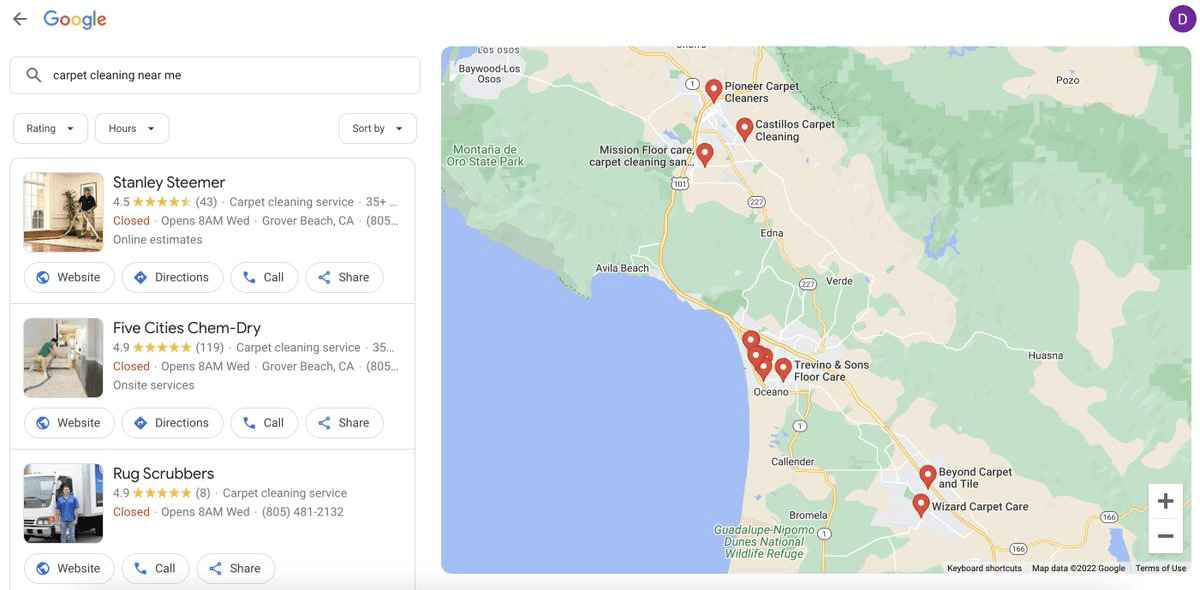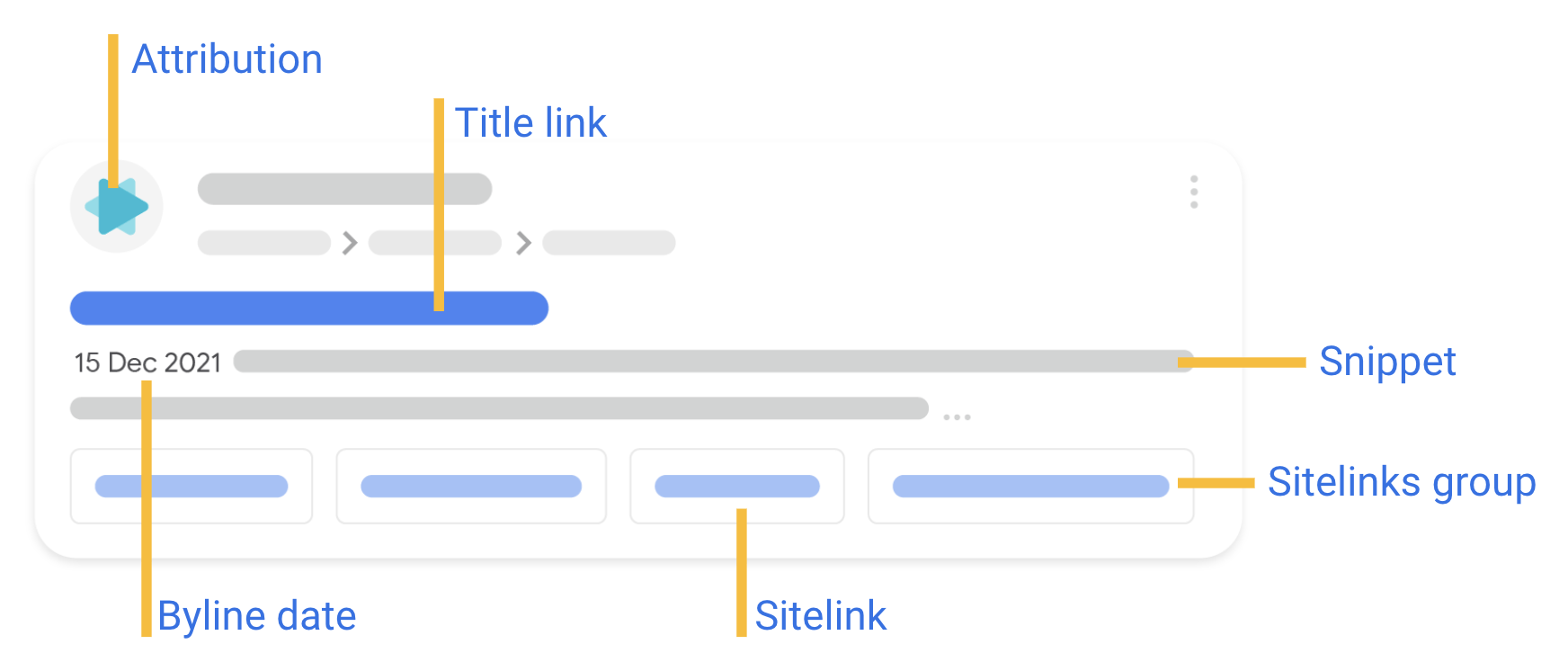Local Memo: Big Tech Teams Up to Launch Mapping Alternative

Local Memo: Big Tech Teams Up to Launch Mapping Alternative
In this week’s post, learn about big tech’s new mapping initiative; Twitter’s ban on links to other social media platforms; Google’s updated E-E-A-T guidelines; a new service-oriented version of the local finder; Google’s Visual Elements Gallery; and a prompt to add videos to Google Maps reviews.
Big Tech Teams Up to Launch Mapping Alternative
The Linux Foundation, in partnership with Amazon, Meta, Microsoft, and TomTom, has announced an initiative called the Overture Maps Foundation that aims to create an open-source alternative to mapping platforms such as Google Maps and Apple Maps. Reportedly, the Linux Foundation is “hosting” the program, but it will primarily be run by the four big tech companies acting in concert with each other. The foundation looks to create an open, interoperable dataset that incorporates contributions from the participating companies. Linux Foundation executive director Jim Zemlin said in a press release that “no one organization” can manage the complexity of mapping the world; instead, “industry needs to come together to do this for the benefit of all.”
The omission of Apple and, more notably, Google from the consortium of companies suggests that the initiative is designed to create an alternative to the dominant proprietary mapping platforms in use today. The Linux Foundation has promoted similar initiatives recently, such as OpenWallet, which aims to create an open standard for payments as an alternative to the closed systems developed by Google and Apple.
The long-established open platform OpenStreetMaps will likely be used as a data source for Overture, as will the public records of municipalities. The foundation plans to release its first datasets in 2023.
Twitter Bans Links to Social Media Platforms
You can say this about the new Twitter: the company is breaking news these days at rates only Google can match. Among the latest developments is an announcement posted on Sunday morning — but deleted several hours later — that Twitter would no longer allow “free promotion of certain social media platforms.” The announcement stated that Twitter users would no longer be allowed to share links to a prohibited list of platforms, whether in tweets or in their profiles. The prohibited list included Facebook, Instagram, Mastodon, Truth Social, Tribal, Post, and Nostr. In addition, Twitter said it would suspend any account whose primary purpose is sharing content from any of the prohibited networks.
The move seemed aimed to discourage competition as well as to prevent an exodus of Twitter users to sites like Mastodon and Nostr, the latter having been promoted as a Twitter alternative by company founder Jack Dorsey. Though it would have affected millions of accounts, the policy was apparently rescinded as swiftly as it appeared. The announcement tweet and related web page were deleted on Sunday evening.
Google Adds “Experience” to new E-E-A-T Guidelines
Google says it is adding an extra “E” to the well-known SEO guideline known as E-A-T, which stands for expertise, authoritativeness, and trustworthiness. The new “E” stands for experience and transforms the acronym to E-E-A-T. Google uses the guideline to help determine whether web content would be considered by an ordinary user to exhibit these qualities.
Google defines the new experience criteria as a way of evaluating whether the author of a piece of content is speaking from relevant experience. For instance, the author of a product review should really have used the product in question; a travel review should be written by someone who has actually visited the place being described. This is different from expertise — for example, a tax accountant has expertise, but someone who has personally used a tax software platform, and thus can legitimately review it, has experience.
E-E-A-T, or “Double-E-A-T,” is part of Google’s updated search rater guidelines. The company says the guidelines help explain how web content is evaluated, and can also help authors improve their own content.
Google Launches Service-Oriented Version of Local Finder, Showcases Services on Desktop
Google appears to be launching a new version of the local finder on desktop that is specific to service-oriented businesses. The change appears to correspond with a recent update to local pack headers, whereby almost all businesses now appear to be categorized under just three headings: “Businesses,” “Places,” and “In-store inventory.” Though there is some inconsistency, Google seems to be using “Businesses” to describe service-oriented businesses such as carpet cleaners and tax preparation companies, whereas “Places” are destinations customers visit such as restaurants. “In-store availability” is used to indicate retail stores with product offerings.
For listings categorized as “Businesses,” clicking through to the local finder takes the user to a differently laid out interface that bears some resemblance to the Local Service Ads directory, with prominent callouts for listings offering the Google Guaranteed badge. When a full business profile is displayed, it shows features that previously were available only on mobile profiles, such as a full menu of services.

New local finder interface for service-oriented businesses
Google’s Visual Elements Gallery Offers Guide to SERP Components
Google has published a new resource it calls the Visual Elements Gallery, outlining all of the components currently utilized in SERPs. The gallery is laid out as a visual guided tour of SERP components including the following:
Attribution: elements that identify sources of information, such as URLs and favicons
Text results: the main text components of search results
Video and image results: videos and images pulled from web pages and showcased in search
Exploration features: features such as People Also Ask that invite the searcher to perform related queries
In all, the Visual Elements Gallery depicts 22 search features, with the company saying more features will be added over time. The gallery seems designed in part to provide a standardized naming convention for referring to the components in search.

Anatomy of a text result from the new Visual Elements Gallery
Google Maps Lets Users Post Videos in Reviews
Though Google has provided support for adding videos to reviews on desktop for some time, that capability was just recently added to the Google Maps app, as shared on Twitter by Joy Hawkins. Google has recently expanded the feature set for writing reviews, in particular reviews of restaurants, with new prompts to share the amount of money spent, type of meal purchased, and more. Expanding the prompt to add videos to reviews seems part of that larger trend, as well as a response to the growing popularity of video-based recommendations on TikTok and other sites.
Subscribe to Local Memo!
Signup to receive Local memo updates and the latest on localized marketing, delivered weekly to your inbox.




